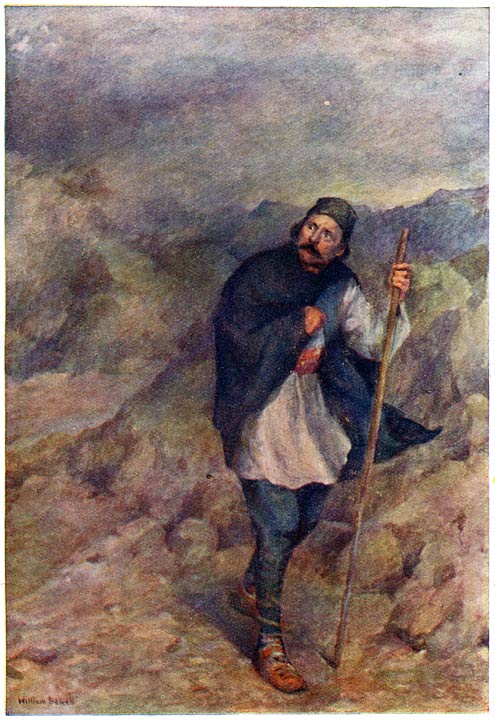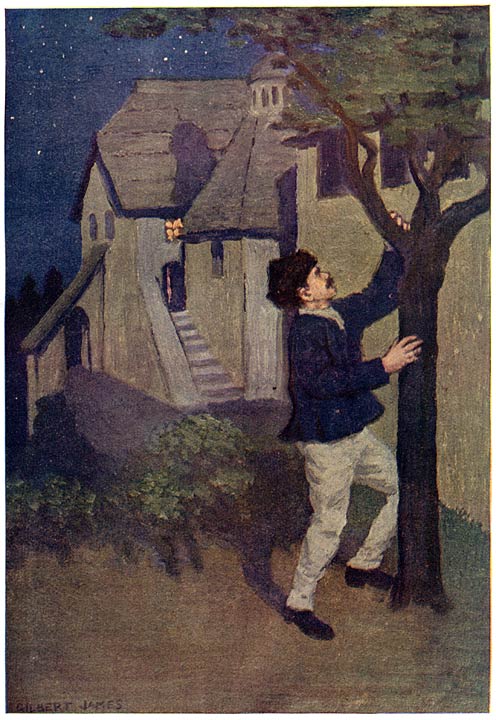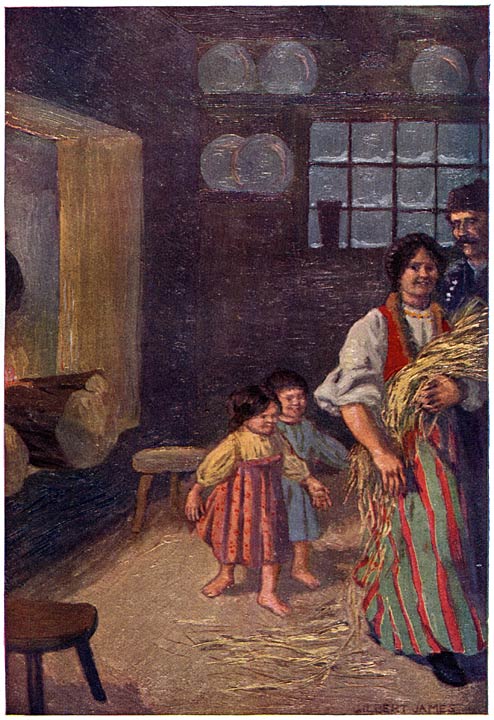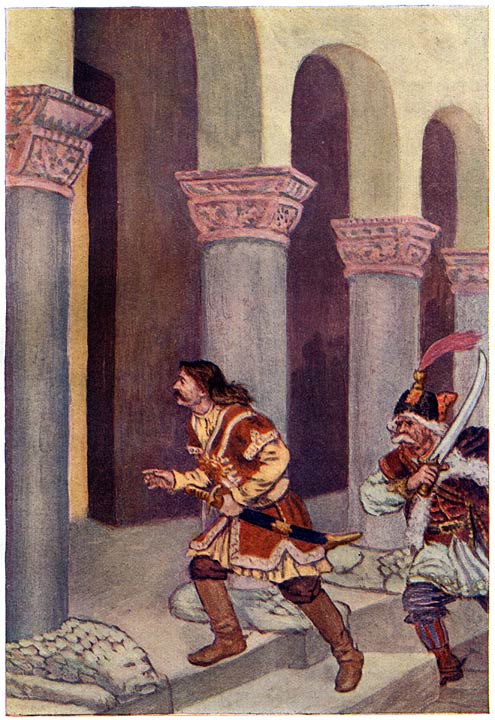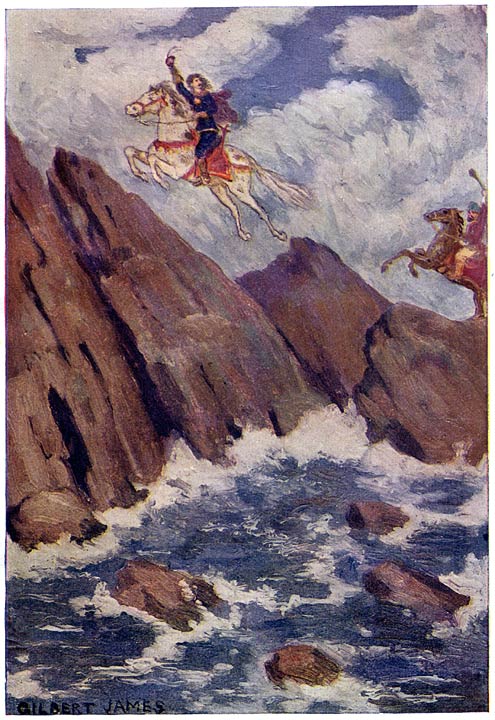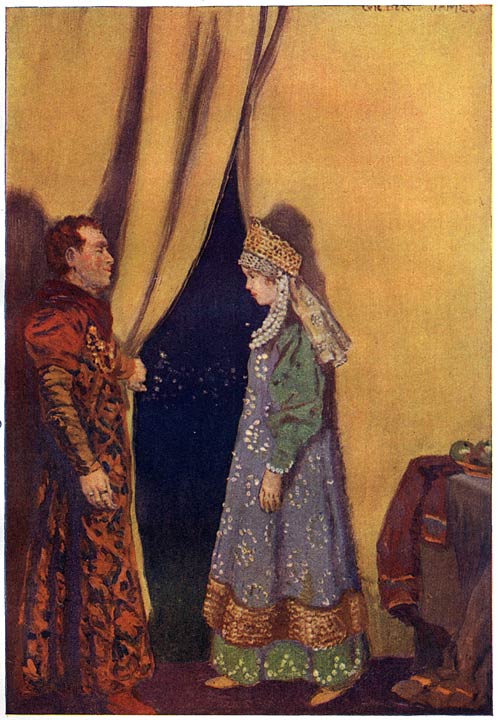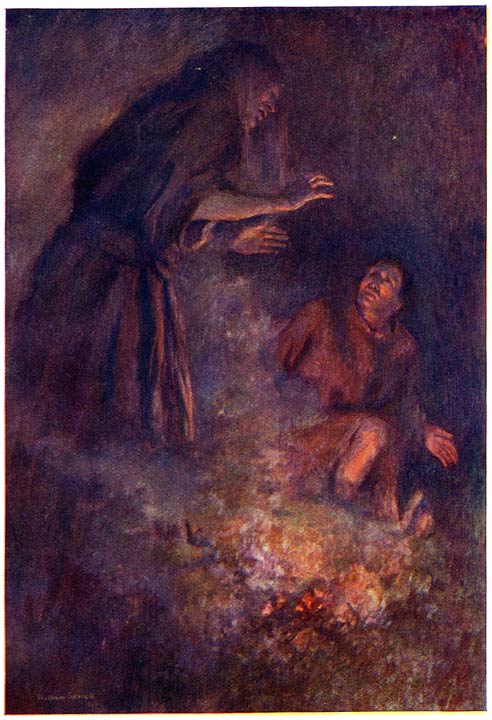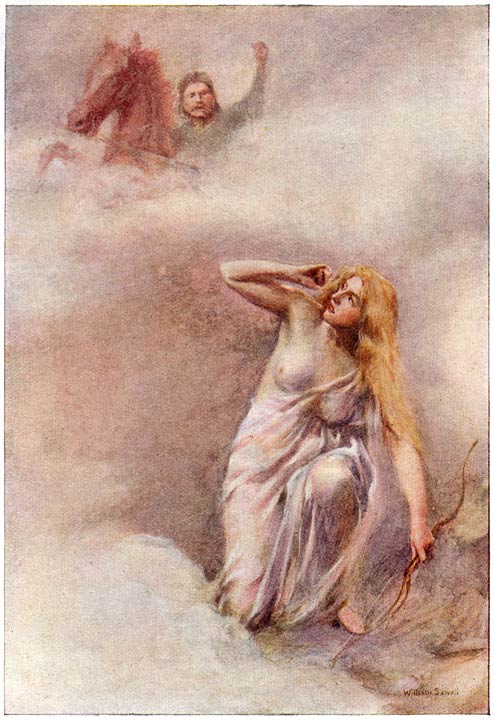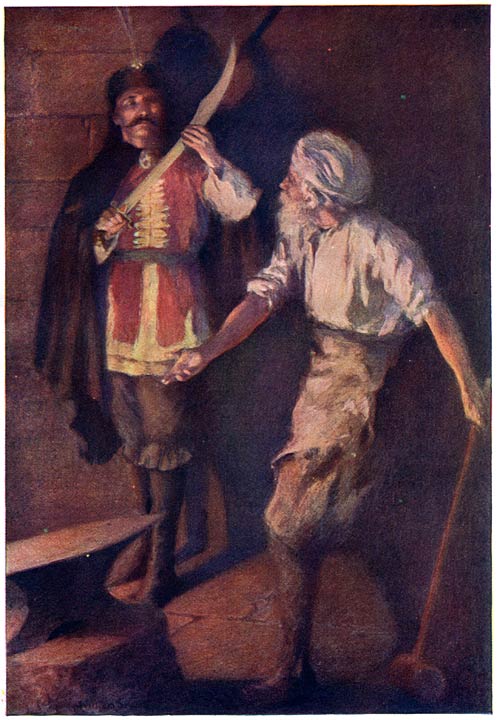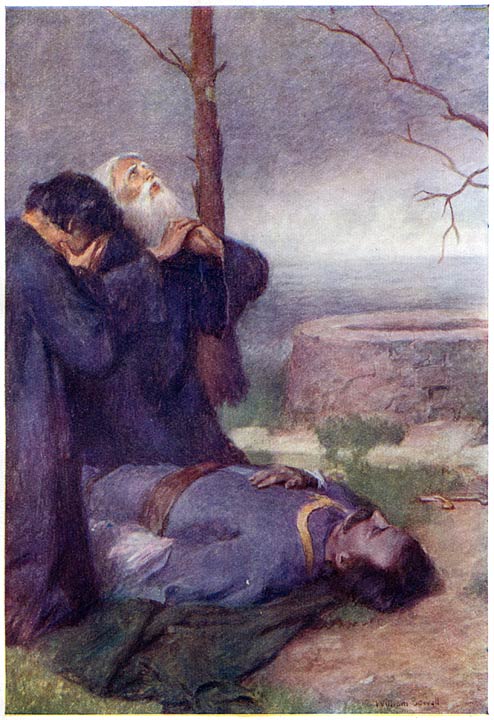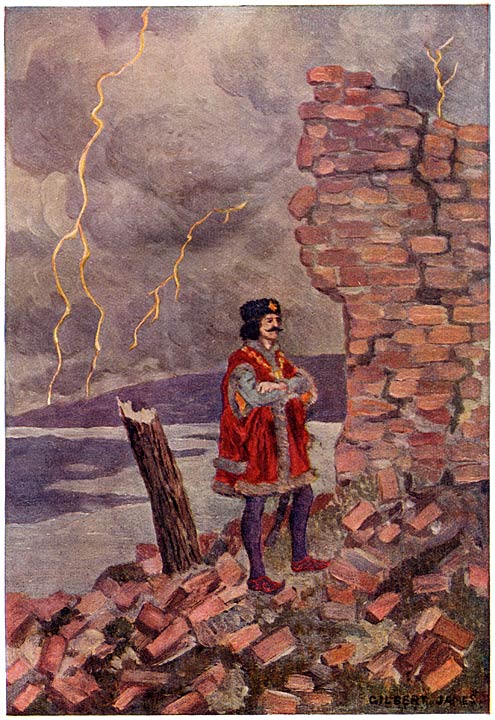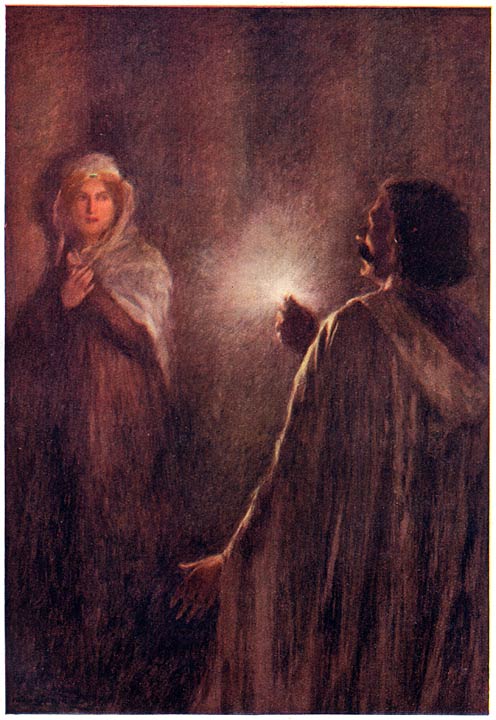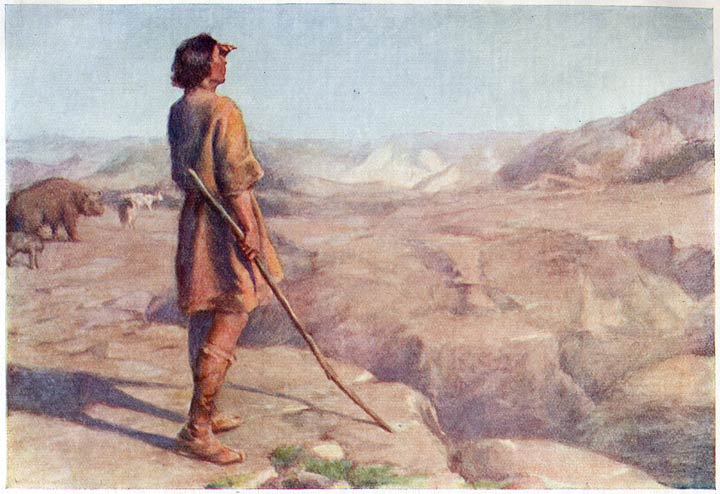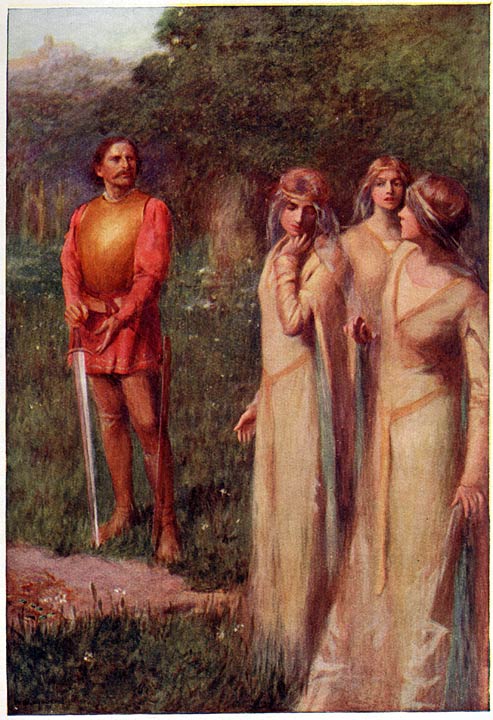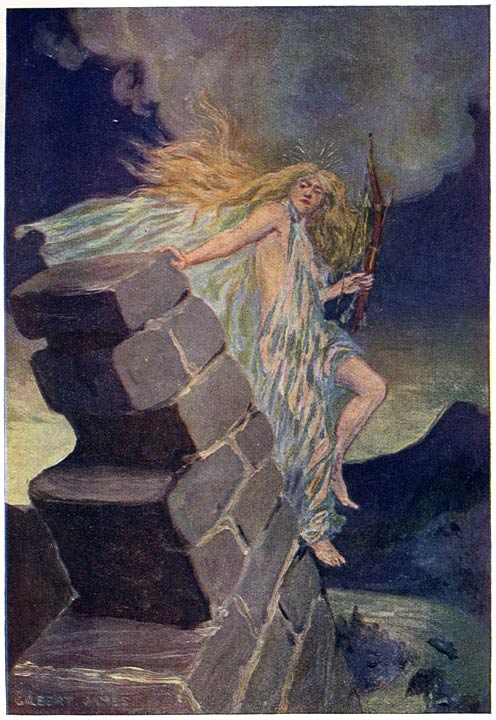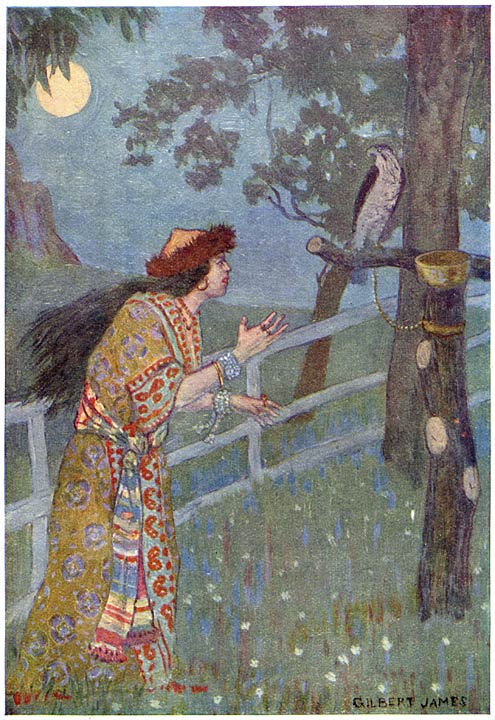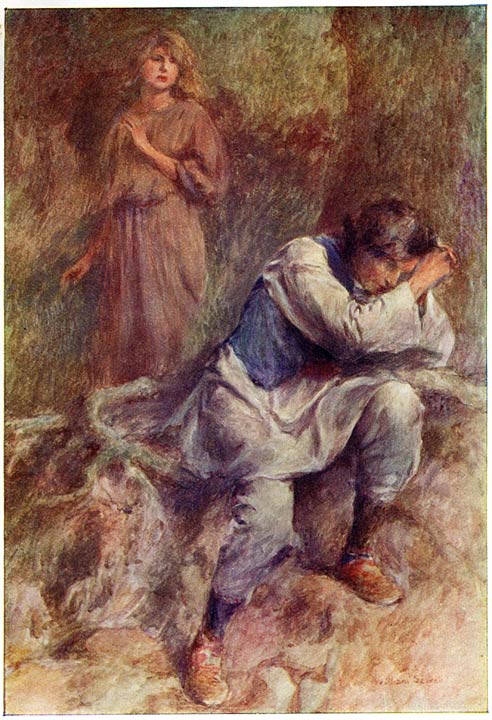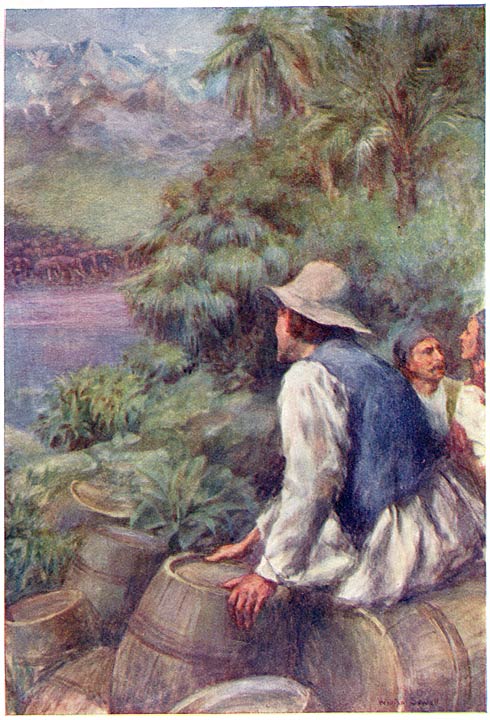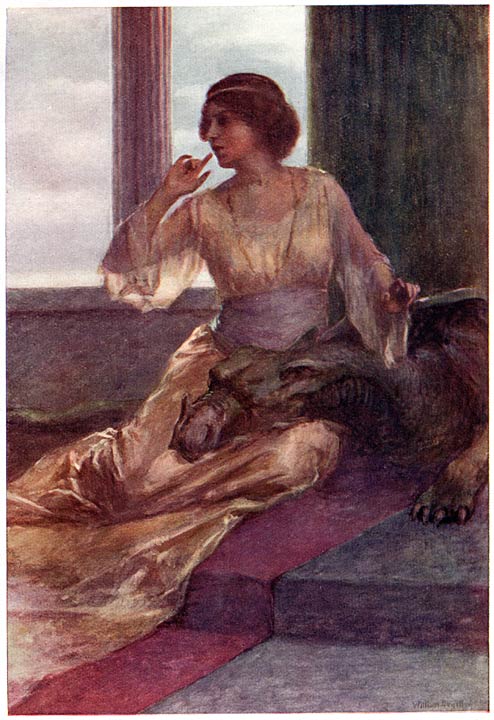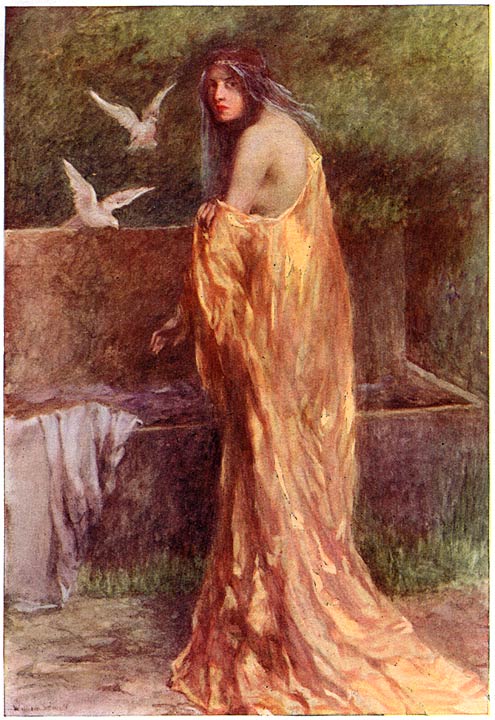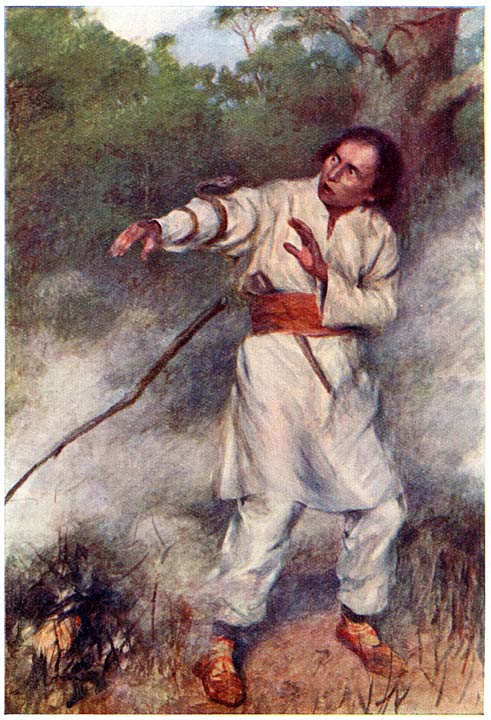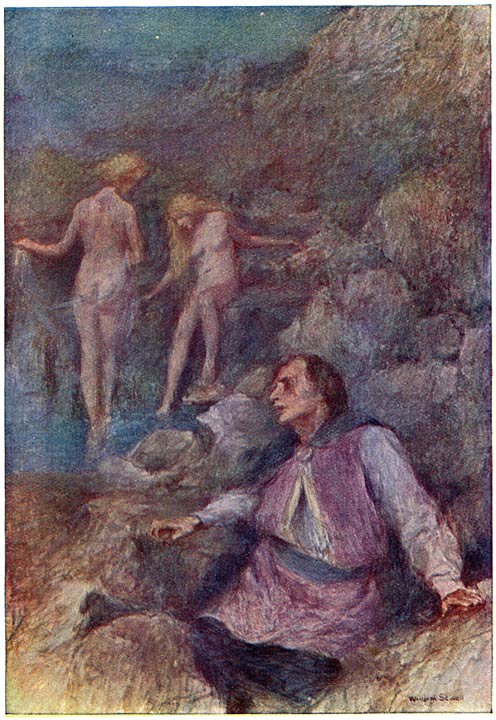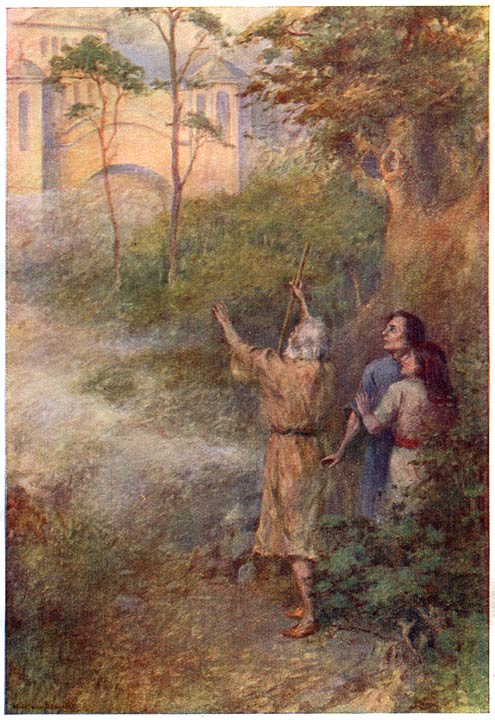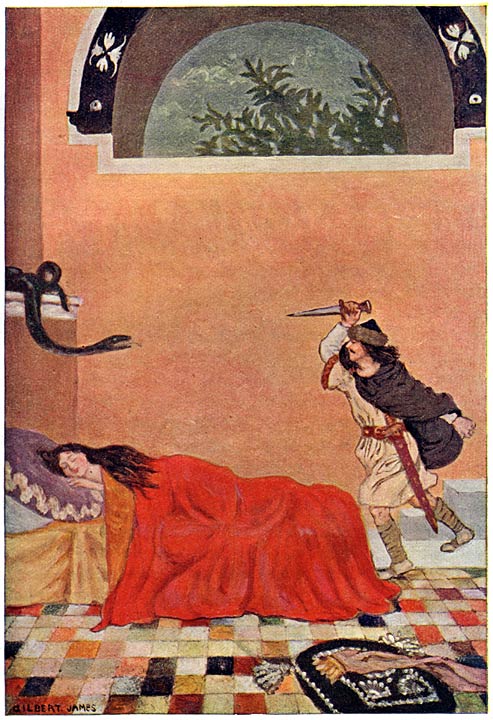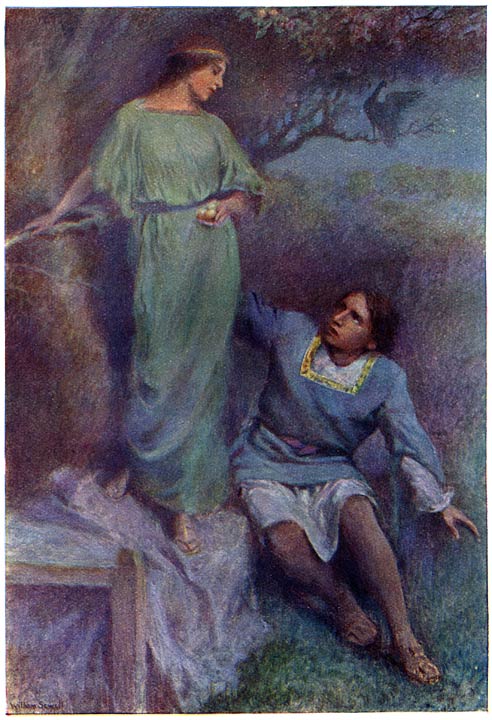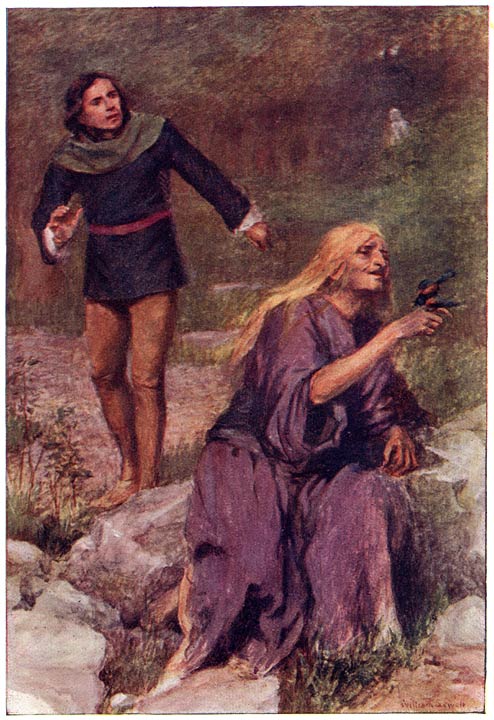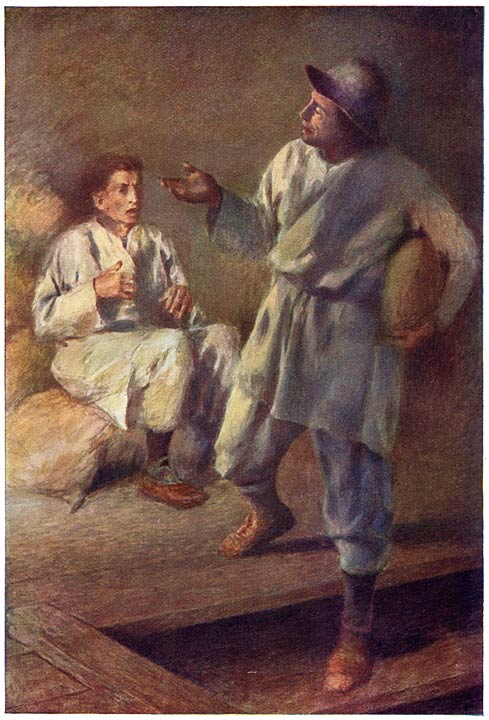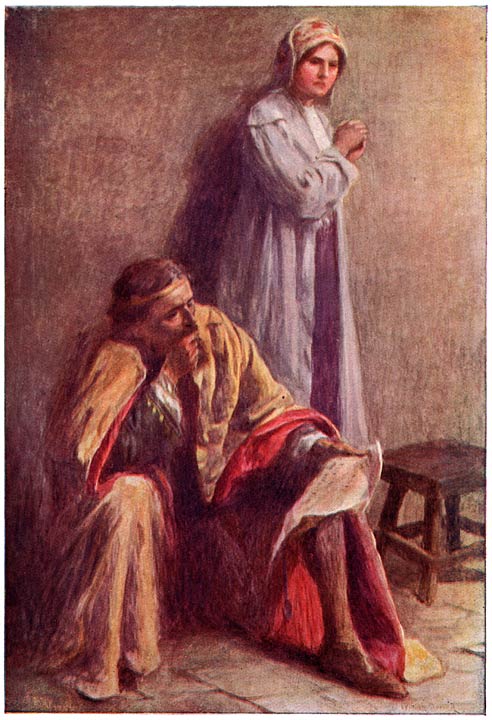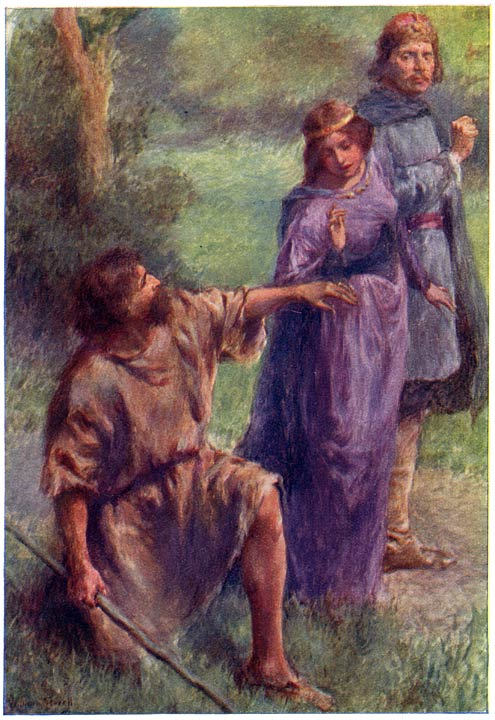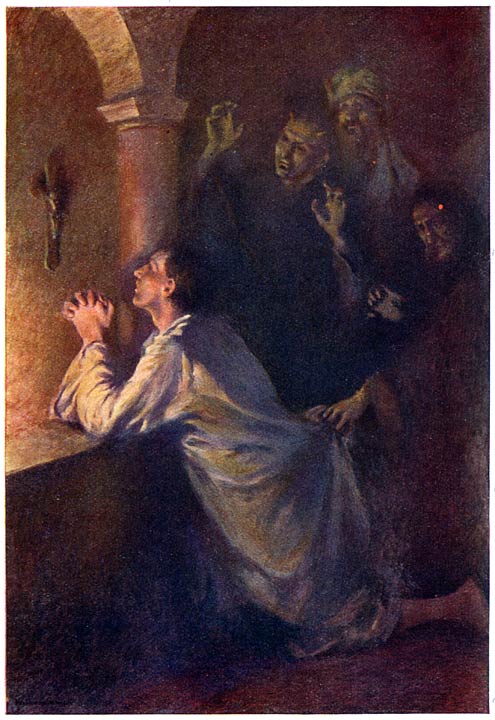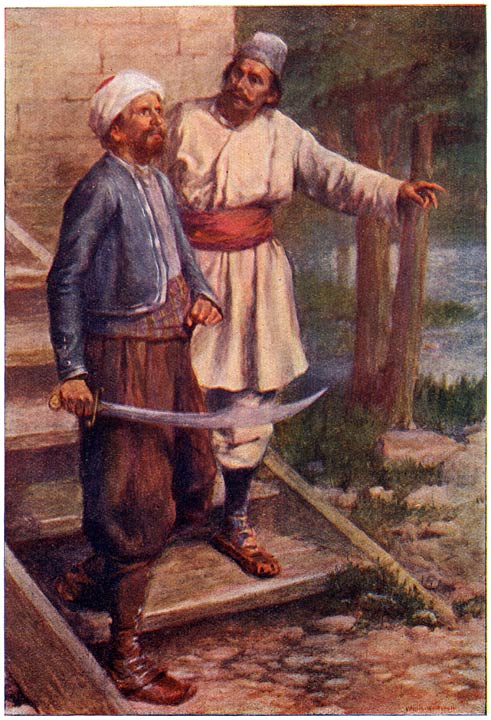
Hero Tales and Legends of the Serbians
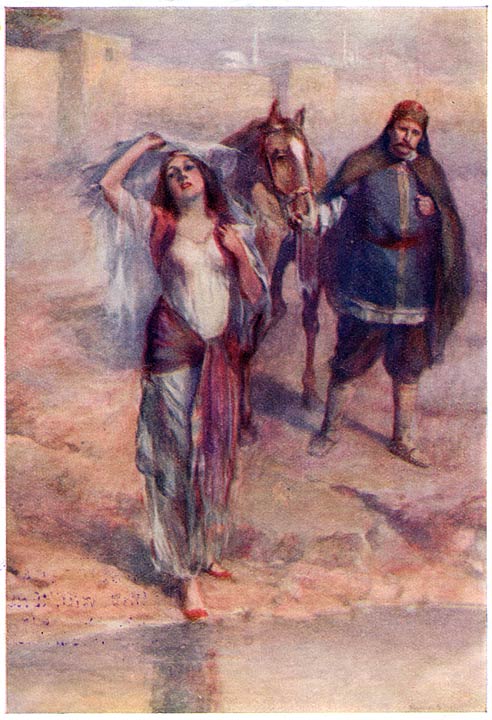
“O beauteous green lake! Thou art to be my home for evermore”

George G. Harrap & Co. Ltd.
2 & 3 Portsmouth Street Kingsway W.C.
And at Sydney
To that most Eminent Serbian
Patriot and Statesman
His Excellency
Nicholas P. Pashitch
This book is
respectfully inscribed
by the author
First published August 1914
Reprinted: November 1916; December 1921
Printed in Great Britain at The Ballantyne Press by
Spottiswoode, Ballantyne & Co. Ltd
Colchester, London & Eton [v]
Preface
Serbians attach the utmost value and importance to the sympathies of such a highly cultured, great, and therefore legitimately influential people as is the British nation. Since the beginning of the twentieth century there have been two critical occasions1—the annexation of Bosnia and Herzegovina by Austria and the war against the Turks—when we have had opportunities to note how British sympathies, even when apparently only platonic, can be of great practical importance for our nation. It is quite natural that we should desire to retain and if possible deepen and increase those sympathies. We are proud of our army, but we flatter ourselves that our nation may win sympathy and respect by other than military features of its national character. We wish that our British friends should know our nation such as it is. We wish them to be acquainted with our national psychology. And nothing could give a better insight into the very soul of the Serbian nation than this book.
The Serbians belong ethnologically to the great family of the Slavonic nations. They are first cousins to the Russians, Poles, Czechs, Slovaks, and Bulgars, and they are brothers to the Croats and Slovenes. Since the Church has ceased to be the discordant and disuniting element in the life of the nations, the Orthodox Serbians and the Roman Catholic Croats are practically one and the same people. But of all Slavonic nations the Serbians can legitimately claim to be the most poetical one. Their language is the richest and the most musical among all the Slavonic languages. The late Professor Morfill, a [vi]man who was something of a Panslavist, repeatedly said to me: “I wish you Serbians, as well as all other Slavonic nations, to join Russia in a political union, but I do not wish you to surrender your beautiful and well-developed language to be exchanged for the Russian!” On one occasion he went even so far as to suggest that the future United States of the Slavs should adopt as their literary and official language the Serbian, as by far the finest and most musical of all the Slavonic tongues.
When our ancestors occupied the western part of the Balkan Peninsula, they found there numerous Latin colonies and Greek towns and settlements. In the course of twelve centuries we have through intermarriage absorbed much Greek and Latin blood. That influence, and the influence of the commercial and political intercourse with Italy, has softened our language and our manners and intensified our original Slavonic love of what is beautiful, poetical, and noble. We are a special Slavonic type, modified by Latin and Greek influences. The Bulgars are a Slavonic nation of a quite different type, created by the circulation of Tartar blood in Slavonian veins. This simple fact throws much light on the conflicts between the Serbians and Bulgarians during the Middle Ages, and even in our own days.
Now what are the Serbian national songs? They are not songs made by cultured or highly educated poets—songs which, becoming popular, are sung by common people. They are songs made by the common people themselves. Up to the middle of the nineteenth century the Serbian peasantry lived mostly in agricultural and family associations called Zadrooga. As M. Petrovitch has stated, the sons of a peasant did not leave their father’s house when they got married, but built a wooden cottage on the [vii]land surrounding the father’s house. Very often a large settlement arose around the original home, with often more than a hundred persons, men and women, working together, considering the land and houses as their common property, enjoying the fruits of their work as the common property too. All the members of the Zadrooga considered the oldest member of such family association as their chief, and it was the usual custom to gather round him every evening in the original house. After questions of farming or other business had been disposed of, the family gathering would be enlivened by the chieftain or some other male member reciting an epic song, or several such songs, describing historic events or events which had lately happened. At the public gatherings around the churches and monasteries groups of men and women would similarly gather about the reciters of songs on old kings and heroes or on some great and important event.
In Hungarian Serbia (Syrmia, Banat, Bachka) poor blind men often make it a lucrative profession to sing old or new songs, mostly on old heroes and historical events or on contemporary events. But in other parts of Serbia (Shumadiya, Bosnia, Herzegovina, Montenegro, Dalmatia) very often well-to-do peasants recite the hero songs to crowds of listeners of both sexes. It is a curious fact noticed already by Vouk S. Karadgitch that the reciters of the heroic songs are hardly ever young men, but generally men of middle age, and still more frequently old men. It is as if old men considered it their duty to acquaint the young generation with the principal events of the nation’s history and their principal heroes. You may find still many an illiterate person in Serbia, but you will not find one who would not be able to tell you something about Stephan Nemanya, the first king of mediæval Serbia, about his son St. Sava, [viii]Tsar Doushan, his young son Ourosh, King Voukashin, the Royal Prince Kralyevitch Marko, Tsar Lazar, and the heroes who fell in the famous battle at Kossovo (1389). It can be said that the Serbian peasants wrote their own national history by composing and reciting it from one generation to another in the rhythmical ten-syllabic blank verse. The gooslari and the monks kept the national political consciousness and the national Church fully alive through the five centuries in which they were only Turkish Rayah, a mass of common people doomed to be nothing better than slaves to their master, the Turk. We would to-day not have known anything about the persistent guerilla war, which the best and boldest men of the nation were relentlessly carrying on against the nation’s oppressor since the beginning of the sixteenth century until the first rising of Shumadia under Karageorge in 1804, if we had not the so-called Haïdoochke Pesme (the Songs on Haïdooks). Long before the history of The Resurrection of the Serbian National State had been written by Stoyan Novakovich, the learned President of the Serbian Academy, the bard Vishnyich described that resurrection in songs of great beauty and power. And the victories of the Serbian army over the Turks and Bulgars in the war of 1912–13 are already sung by the improvized bards in the inns and at the great gatherings of the people at the village fairs and around the churches on great church festivals. Of course, a Serbian who has heard on hundreds of occasions national songs recited learns to recite them himself, although he may not be able to accompany his recitation on the goussle. Nor does he find it difficult, by using many stereotyped lines of old and well-known songs, to tell the story of a recent event. When in 1873, as Minister of Finance, I was defeated in the Budget debate at the Skoupshtina, [ix]my defeat was recited to the people in blank verse the same evening, and the next day.
Besides the songs which relate, more or less accurately, actual events, many a national song relates a legend or a tradition. They have been created, no doubt, under the influence of the priests and monks, and are appropriate recitations to the crowds who come to the church festivals. I am glad to see that M. Petrovitch has included in his collection the song which is probably the oldest among all Serbian songs. It is called “The Saints partition [or divide] the Treasures,” and it gives expression to an evidently very old tradition, which remembers a sort of catastrophe which befell India, and which probably was the cause of the ancient ancestors of the Slavs leaving India. It is most remarkable to find an echo of an Indian catastrophe in the national songs of the Serbians.
That the Serbians had national songs in which they described the exploits of their national heroes was noted in the fourteenth century. Nicephoras Gregoras, sent by the Byzantine Emperor on a diplomatic mission to Serbia, relates having heard the Serbians sing their national songs on their heroes. The records of several diplomatic missions, going from Vienna or Buda to Constantinople during the sixteenth century, relate that the members heard people sing heroic songs. In that century we have the first attempt to reproduce in print some of those national songs, as, for instance, by the Ragusan poet Hectorovich. In the eighteenth century fuller efforts were made by the Franciscan monk Kachich-Mioshich and by Abbé Fortis. But it is to the self-taught founder of modern Serbian literature, Vouk Stephanovitch Karadgitch, that the greatest honour is due, as has been shown by M. Petrovitch in his Introduction and elsewhere. [x]
M. Petrovitch must have experienced what the French call embarras de richesses. It was not so easy to select the songs for an English translation. But he has given us some of the finest Serbian epic songs as samples of what the Serbian national poetry is capable of creating. I regret only that he has not included a few samples of what the Serbian village women and girls are able to produce in the way of lyrical poetry. Perhaps on some other occasion he will make an amende honorable to our countrywomen.
I wish to add yet a few words to what M. Petrovitch has said about our greatest national hero, the Royal Prince (Kralyevitch) Marko. As he has pointed out, Marko is a historical personality. But what history has to say about him is not much, and certainly not of the nature to explain how he became the favourite hero of the Serbian people. He was a loyal and faithful vassal of the Sultan, a fact hardly likely to win him the respect and admiration of the Serbians. Yet the Serbians throughout the last five centuries have respected, admired, loved their Royal Prince Marko, and were and are now and will ever be proud of him. This psychological puzzle has stirred up the best Serbian and some other historical students and authors to investigate the matter. It is evident to all that most of the songs on Marko must have been composed under the mighty influence of his personality upon his contemporary countrymen. Dr. Yagich, Dr. Maretich, Professor Stoykovich and St. Novakovich all believe that his athletic strength and personal appearance were responsible for much of the impression he made. All agree that his conduct in everyday life and on all occasions was that of a true knight, a cavaliere servente, a chevalier sans peur et sans [xi]reproche. Even his attachment and unfailing readiness to serve the Sultan was counted in his favour, as proof of his absolute loyalty of character. Probably that very loyalty was appreciated by the Sultan and enabled Marko not rarely to appeal to the Sultan in favour of his people, especially when some prisoners or slaves were to be liberated and saved. He was certainly the protector of poor and suffering men and women, and went to their rescue at all and every personal risk and cost. He must have given real proofs of his devotion to the cause of justice; that is what endeared him to his generation as well as to the generations which followed. He must have been known during his life for his fear of God and his respect and tender love for his mother. The Serbians painted him from the model which his own personality and his actual deeds offered to the nation. One of the most beautiful features of his knightly character as described by the national bards is his love of and pity for suffering animals. I regret that my friend Petrovitch did not give a sample of the songs which glorify that feature of our national hero, as, for instance, the song “Marko and the Falcon” (Vouk. ii. 53), or “Marko and the Eagle” (Vouk. ii. 54), in each of which it is described how when once Marko fell ill on a field, an intense thirst tormenting him and the scorching sun-rays burning his face, those birds out of gratitude for the kindness Marko showed them once, brought to him water in their beaks and spread their wings to shade his face against the sun.
By far the best study on the Serbian national hero has been written by the Russian professor M. Halanski, who explains the puzzle by the natural sympathy of the people for a ‘tragic hero.’ The historical Marko was certainly a ‘tragic hero.’ Nothing proves that better than his last [xii]words before the battle of Rovina began (1399), and which M. Petrovitch quotes in the text.
I ought to add that there is also a theory that the Serbian nation, so to say, projected itself in the Royal Prince Marko, depicting its own tragic fate, its own virtues and weaknesses, in the popular yet tragic personality of Marko. No doubt Marko must have been in some way the representative type of a noble Serbian, otherwise he could not have found the way to the soul and heart of his people. Yet that theory is hardly modest, for my taste.
It may interest our British friends to know that a relation of the dynasty of which Marko was the last representative, a certain Prince John Mussachi, in a historical memoir stated that Marko’s father, King Voukashin, was the descendant of a certain nobleman named Britanius or Britanicus!2 We should be proud if it could be proved that the ancestors of our national hero were in some way connected with the Britons.
Chedo Miyatovich
Member of the Royal Serbian Academy of Sciences
Belgrade
June 28, 1914 [xiii]
Contents
[xv]
Illustrations
- Facing page
- “O Beauteous Green Lake! Thou art to be my Home for Evermore” Frontispiece
- He is instantly pursued by a dense Fog 18
- The Young Man shakes a Tree Three Times 32
- The Children gleefully follow her 48
- Voukashin was on the Point of getting within Reach of his Son 70
- “But thanks to Sharatz I got farther and farther from him” 86
- The Doge gallantly raised the Hanging at the Door 96
- “I saw how Black her Face was and I shuddered with Horror” 102
- In a few Moments Sharatz came up with the Veela 104
- “There is the Sword and here is the Anvil” 112
- He lamented loudly the Fate of Marko 116
- A Tower had struck Maximus without doing him serious Hurt 138
- The Rays shone upon the Maiden 150
- The Mountain Shar where Milosh-the-Shepherd tarried with his Flocks 154
- Two of them looked meaningly at their Companion 166
- The Veela razing the Walls of Skadar 200
- She wrung the Neck of Paul’s grey Falcon 208
- “Why do you weep, my Brother?” 214
- The Elephants came as was expected 218
- Sitting with the sleeping Dragon’s Head on her Knee 222
- Marra took off her Golden Dress 228
- The Snake entwined itself swiftly round his Arm 232
- The Veele came to the Spring to bathe 242
- On that Spot instantly rose a beautiful Palace 246
- He was horrified to see a Snake on the Wall 254 [xvi]
- The Pea-hen instantly turned into a Maiden 268
- The Old Woman was absorbed in playing with the Bird 282
- “The whole Loaf is for Thee, and Beardless is to get Nothing!” 286
- He could not find a Word to say 290
- “Pray, give me your Hand that I may see your Ring!” 298
- The Young Man strove earnestly in Prayer 302
- He asked the Era where he had hidden the Thief 364
[xvii]
Introduction
More than once in the following pages I have lamented my inability to translate into English verse the spirited ballads of our national bards; never until now have I realized the error involved in the dictum of my teachers of literature—true as it may be from one point of view—that beautiful thoughts are to be more freely expressed in prose than in a poetic form, which is necessarily hampered by rules of prosody and metre. Undoubtedly, good prose is worth more than mediocre verse, but how if the author be a master poet?
Serbian epic poetry undoubtedly deserves the attention of the English literary world, and I venture to express the hope that some day another English poet will be attracted as was Sir John Bowring by the charm of our ballads, and like him will endeavour to communicate to readers of English the alluring rhythmic qualities of the originals.
In the first half of the nineteenth century various German poets transversified some of our national ballads, and I cannot but boast that among the number was even Goethe himself. Alas! he was compelled to use Italian versions, for he was ignorant of the Serbian language, unlike his worthy countryman Jacob Grimm, who, after having learnt our musical tongue that he might acquaint himself with the treasures written in it, wrote: “The Serbian national poetry deserves indeed a general attention.... On account of these ballads I think the Serbian will now be universally studied.”
A Tcheque1 writer, Lyoodevit Schtur, speaking of the Slav poetry, wrote: “The Indo-European peoples express each in their own manner what they contain in themselves [xviii]and what elevates their souls. The Indian manifests this in his huge temples; the Persian in his holy books; the Egyptian in pyramids, obelisks and immeasurable, mysterious labyrinths; the Hellene in his magnificent statues; the Roman in his enchanting pictures; the German in his beautiful music—the Slavs have poured out their soul and their intimate thoughts in ballads and tales.”
I think that it is not too much to claim that of all the Slavs, Serbians have most profusely poured out their souls in their poetry, which is thoroughly and essentially national. So much could not safely be said about their tales and legends, which, to my mind, seem less characteristic. Indeed, by their striking analogy with the folk lore of other nations they help to demonstrate the prehistoric oneness of the entire Aryan race. For example, it would be ridiculous for any nation to lay exclusive claim, as ‘national property,’ to such legends as “Cinderella”2 and certain others, which are found more or less alike in many languages, as is well known to those who have any considerable acquaintance with European folk lore.
From time immemorial the Serbian has possessed an exceptional natural gift for composing heroic ballads. That gift was brought from his ancient abode in the North; and the beautiful scenery of his new surroundings, and contact with the civilized Byzantine, influenced it very considerably and provided food for its development, so that it came to resemble the Homeric epic rather than any product of the genius of the Northern Slav. The treasure of his mental productions was continually augmented [xix]by new impressions, and the national poetry thus grew opulent in its form and more beautiful in its composition. The glorious forests of the Balkans, instinct with legend and romance, to which truly no other forests in Europe can compare; the ever-smiling sky of Southern Macedonia; the gigantic Black Rocks of Montenegro and Herzegovina, are well calculated to inspire even a less talented people than the Serbian inhabitants of those romantic regions for the last thirteen centuries.
The untiring Serbian muse pursued her mission alike upon the battlefield or in the forest, in pleasant pastures amid the flocks, or beneath the frowning walls of princely castles and sacred monasteries. The entire nation participated in her gracious gifts; and whenever a poet chanted of the exploits of some favourite national hero, or of the pious deeds of monk or saint, or, indeed, of any subject which appeals closely to the people, there were never lacking other bards who could make such poetic creations their own and pass them on with the modifications which must always accompany oral transmission, and which serve to bring them ever more intimately near to the heart of the nation. This characteristic of oral transmission explains the existence of varying versions of some of the most popular songs.
Through many centuries, and more especially during the blighting domination of the Turk, Serbian national literature was limited to a merely oral form, save that the untiring monks, inviolable within the sacred walls of their monasteries, spent their leisure, not in inscribing the popular ballads and lyric songs of their nation, but in recording the biographies of other monks or of this or that princely patron.
Those Serbians who could not endure the oppressive [xx]rule of the Ottoman, and who in the seventeenth century emigrated with their Patriarch Arsen Tcharnoyevitch to the level fields of Southern Hungary—there to adopt in the course of the two subsequent centuries the pseudo-classicism of the West—considered it infra dignitatem to write about such vulgar subjects as popular poetry and tradition. The gifted descendants of those lamentable slaves of the cunning Austrian and Pan-Russian influences wasted their talents in vain and empty imitation of pseudo-classic productions from Italy and France, and, by conjugating zealously the Serbian and Old-Slavonic verbs in the Russian fashion they created a monstrous literary jargon which they termed Slavyano-Serbski (i.e. Slavo-Serbian). And if any Serbian author should have presumed to write in the melodious and genuine Serbian as universally spoken throughout his fatherland, he would have been anathematized by those misguided Slavo-Serbian ‘classicists’ who fondly believed that by writing in a language hardly comprehensible even to themselves, because of its utter inconsequence and arbitrary changes, they would surely become distinguished in the history of their nation’s literature.
The ‘classicists’ received their deserts in the first half of the nineteenth century, when they were overwhelmed by the irresistible torrent of the popular movement headed by the self-taught Serbian peasant, Vouk Stephanovitch-Karadgitch, whose name will remain for ever great in the history of Serbian literature. Karadgitch has been called justly “the father of Serbian modern literature.” His numberless opponents, who began by heaping upon him every opprobrious epithet which their pens or tongues could command, ended, after more than fifty years of fruitless resistance, by opening wide their arms to him. [xxi]
Karadgitch framed a grammar of the popular Serbian language, banishing all unnecessary graphic signs and adapting his thirty-lettered alphabet to the thirty sounds (five vowels and twenty-five consonants) of his mother tongue—thus giving it an ideal phonetic orthography, and establishing the golden rule, “Spell as you speak and speak as you spell.”3 He also travelled from one village to another throughout Serbia, zealously collecting and inscribing the epic and lyric poems, legends, and traditions as he heard them from the lips of bards and story-tellers, professional and amateur.
In his endeavours he was powerfully seconded by the Serbian ruling princes, and he had the good fortune to acquire the intimate friendship of those distinguished philologers and scientists of the last century, Bartholemy Kopitar, Schaffarik, and Grimm. Helped by Kopitar, Karadgitch succeeded in compiling an academic dictionary of the Serbian language interpreted by Latin and German equivalents. This remains to this day the only reliable Serbian dictionary approaching to the Western standard of such books. His first collection of Serbian popular poems was published in Vienna in 1814. It contained 200 lyric songs, which he called zenske pyesme (i.e. ‘women-songs’), and 23 heroic ballads, and the book created a stir in literary circles in Austria, Serbia, Germany, Russia, and other countries. Seven years later Karadgitch published at Leipzig a second edition in three books. This contained 406 lyric songs and 117 heroic poems. From this edition Sir John Bowring made his metrical translation of certain of the lyric and epic poems, [xxii]which he published in 1827 under the title Servian Popular Poetry. He dedicated the book to Karadgitch, who was his intimate friend and teacher of Serbian.
I have reproduced three of Bowring’s ballads in this book that English readers may have a better idea than they can obtain from a mere prose rendering of the original verse. As to the poetic merits of these metrical translations I will not presume to offer an opinion, but I may be permitted to say that I have not seen a more faithful translation of our national ballads and lyric songs in English or in any other language. Considering the difficulties to the Anglo-Saxon student of any Slavonic language (more especially Serbian) it is surprising that there should be so few defects in Bowring’s work. Sir John must have possessed an uncommon gift for acquiring languages, as he has also translated from each of the other Slavonic tongues with—so I am informed—similar accuracy and precision.
The third edition of Karadgitch’s work appeared in Vienna at intervals between the years 1841 and 1866. It had now grown to five volumes and contained 1112 lyric songs and 313 heroic ballads. It is from this edition that I have selected the hero-tales in this book; and if I should succeed in interesting a new generation of English readers in the literature of my country it will be my further ambition to attempt the immeasurably harder task of introducing them in a subsequent volume to our popular lyric poetry.
It remains only to tender my most grateful acknowledgment to my esteemed friend M. Chedo Miyatovich for his invaluable advice and encouragement, and for his generous willingness to contribute the preface which adorns my book.
W. M. P. [1]
1 Tcheque is a better synonym for the solecism Bohemian.
2 In Serbian Pepelyouga, where pepel, or—with vocalized l—pepeo, means ‘cinder’ or ‘ashes’; ouga being the idiomatic suffix corresponding to the Italian one or English ella, etc.
3 See Servian Conversation Grammar, by Woislav M. Petrovitch, ed. Julius Groos, Heidelberg, 1914 (London: David Nutt, 212 Shaftesbury Avenue, W.C.), Introduction, pp. 1–8.
